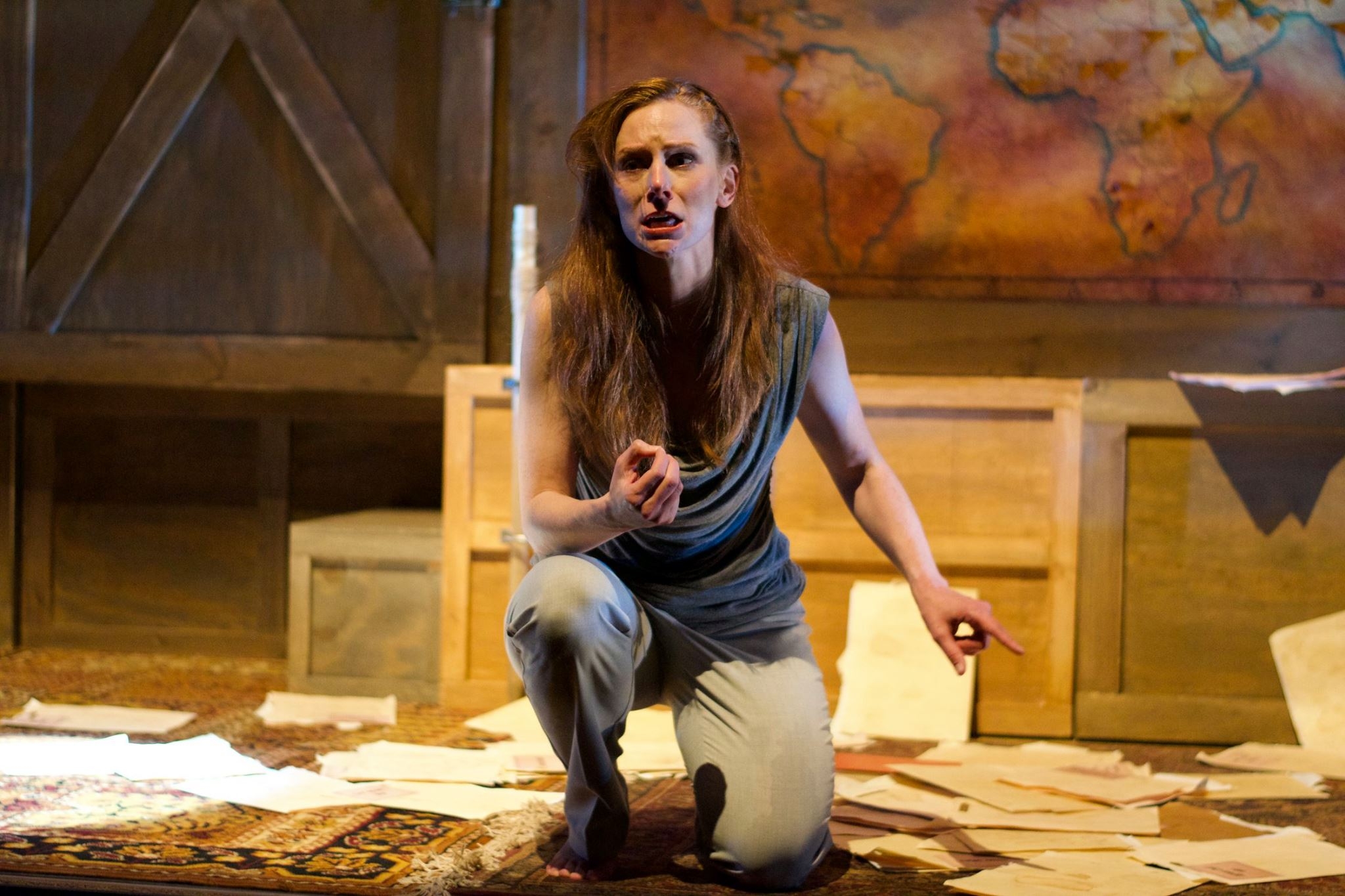Dramatizing war and its effects often makes the most potent anti-war statement among art forms. Therefore, it is for good reason there is a long list of deeply moving anti-war plays, from Aristophanes’ “Lysistrata” to Euripides’ “The Trojan Women” written in the 5th Century to Brecht’s “Mother Courage and Her Children” and rock musical “Hair” in the 20th Century and beyond.
“An Iliad,” the 2012 award-winning stage adaptation of Homer’s nearly 3000-year-old epic poem “The Iliad,” by Tony-winning actor Denis O’Hare and director Lisa Peterson, originally produced Off Broadway at New York Theater Workshop, could be considered part of that genre. However, in Hope Summer Repertory’s production, with evocative direction from HSRT Artistic Director Lenny Banovez, it’s less of a polemic and less heart-centered than many of its predecessors, instead offering a technically skillful, fascinating intellectual exercise expertly performed in a hugely impressive show.
“An Iliad,” indeed, tells the story of “The Iliad,” marking through just a few weeks of The Trojan War that lasted a decade, in contemporary vernacular with some of the original Greek and snippets of verse thrown in. A single actor, the extraordinary Emily Trask, is completely in command of this terrible song she’s sung, tragically, through the ages. “Every time I sing this song I hope it’s the last time,” she laments, and later cries out, “Oh, Muses, don’t make me do this alone!”
The Olympian Gods play both audience and actors in this, considered the first and perhaps greatest European narrative, that’s both human and cosmic. Its central character is Achilles, proclaimed the greatest warrior who ever lived, who argues fiercely with Agamemnon; climactic moments include the hero’s death of Achilles’ bestie Patroclus and the final battle between Achilles and Hector. Trask plays all these parts as well as that of poet/narrator, and the transitions among and between all these roles is utterly seamless, sometimes with a small costume shift, such as the addition of a scarf, and other times with a shift in gesture or posture. She also portrays the more peripheral figures in the story, including Helen, whose face launched 1000 ships; Paris; Hermes; and Hector’s wife, Andromache, as well as his mother, Hecuba.
It all plays out in the acoustically perfect John & Dede Howard Recital Hall, with gorgeous accompaniment from Alicia Storin on cello, who, in addition to providing music and sound to which the story is choreographed, also plays counterpoint to Trask's Poet. It’s a wonderful interplay and device that allows what is essentially a one-woman show to work off energy beyond that of the audience.
The technical elements here are exquisite, too, and enhance the storytelling to wonderful effect. Unlike the original Off Broadway production that used a bare stage, this production employs a towering set of stacked trunks, boxes, and shelves by Sarah Pearline. Trask climbs it, scales it, opens the trunks and boxes to reveal fabulous props by Haley Borodine, including a set of armor, a model of Troy, ships sailing, the cello Storin plays, historical documents, and a bottle of tequila from which she guzzles throughout the telling.
Eric Van Tassell’s lighting design does heavy lifting as well, with booms that create shadows as if lighting dance, augmenting the introduction of Achilles, for example, by making him large as a projected image of Trask's body. Bold shifts from red to blue to gold delineate mood and heighten drama, which is hugely important in this very wordy play in which one woman must create all the characters and all the action.
The show runs nearly two hours without intermission, and though it may speed up somewhat as the run continues, it could use some editing, perhaps the lengthy description of Achilles’ new armor shortly before the climactic moments could go.
However, Trask's litany of human wars from the beginning of time, in chronological order, is powerful. That scene, among others, that mashes up the past with the present, makes real what feels like the darkest part of human nature that creates the oppressive inevitability of war.
An Iliad
Hope Summer Repertory Theatre
July 13-Aug. 7
hope.edu





